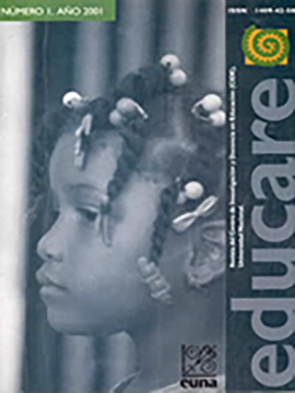Educación y desarrollo rural
DOI:
https://doi.org/10.15359/ree.2001-1.5Abstract
The changes experienced by the contemporary society have a particular manifestation in the rural areas of our countries. In is in these social spaces where the most relevant impact of the accelerated economic, political and cultural integration takes it toll; it is in the rural communities, where the consequences of the open economic policies adopted by governmental authorities, are best reflected. These social processes aftermath brings about a substantial change in the rural world that contributes to enlarging the existing divide, as far as human development, between urban and rural areas.
In Costa Rica, the redefinition of its development strategy started in the 1980´s. Two decades later, without a clearly defined vision and a growing uncertainty about the future on part of the population, it is an unfinished process. The national economy structural adjustment began in the 1980’s. Currently, there are opposing technical opinions as to its results. In this analysis, it is important to emphasize the impacts of the economic policies implemented in the 1980-2000 period, and the changes in the agrarian structure and social relations originated with the modernization processes experienced by the Costa Rican society as of the 1950´s decade.
References
CEPAL (1992) Educación y conocimiento: eje de la transformación
productiva con equidad. Santiago de Chile.
Conejo, C .. Mora, H. y Vargas, J. R. (1999) Costa Rica hacia el siglo XXI. Balance de las reformas económicas 1983-1998. Heredia: EUNA.
Escuela de Economía, UNA-MlDEPLAN ( 1992) Evolución
socioeconómica de Costa Rica: 1975-1989. San José: Litografía e lmprenta Lil.
IICA-FLACSO (1991) Centroamérica en cifras. San José: Servicio editorial IICA.
MIDEPLAN (1998) Costa Rica panorama ,nacional 1997. San José:
MIDEPLAN.
Mora. J. (1992) Movimientos campesinos en Costa Rica. Cuadernos de
Ciencias Soda/es, Nº 53, FLACSO, San José.
Mora, J. (1993) "Los avatares de la democratización en Centroamérica: panicipación ciudadana o exclusión política y económica" En: Demacrada y
democratización en Centroamérica. San José: Editorial de la Universidad de Costa Rica.
Published
How to Cite
Issue
Section
License
1. In case the submitted paper is accepted for publication, the author(s) FREELY, COSTLESS, EXCLUSIVELY AND FOR AN INDEFINITE TERM transfer copyrights and patrimonial rights to Universidad Nacional (UNA, Costa Rica). For more details check the Originality Statement and Copyright Transfer Agreement
2. REUTILIZATION RIGHTS: UNA authorizes authors to use, for any purpose (among them selfarchiving or autoarchiving) and to publish in the Internet in any electronic site, the paper´'s final version, both approved and published (post print), as long as it is done with a non commercial purpose, does not generate derivates without previous consentment and recognizes both publisher's name and authorship.
3. The submission and possible publication of the paper in the Educare Electronic Journal is ruled by the Journal’s editorial policies, the institutional rules of Universidad Nacional and the laws of the Republic of Costa Rica. Additionally, any possible difference of opinion or future dispute shall be settled in accordance with the mechanisms of Alternative Dispute Resolution and the Costa Rican Jurisdiction.
4. In all cases, it is understood that the opinions issued are those of the authors and do not necessarily reflect the position and opinion of Educare, CIDE or Universidad Nacional, Costa Rica. It is also understood that, in the exercise of academic freedom, the authors have carried out a rogorous scientific-academic process of research, reflection and argumentation thar lays within the thematic scope of interest of the Journal.
5. The papers published by Educare Electronic Journal use a Creative Commons License:















 The articles published by Educare Electronic Journal can be shared with a Creative Commons License:
The articles published by Educare Electronic Journal can be shared with a Creative Commons License: 



